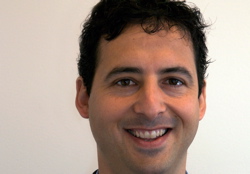As part of the Mary Junck Research Colloquium series, UNC Law Professor David Ardia will give a talk entitled “Freedom of Speech, Defamation, and Injunctions.” He will discuss his research on two centuries of case law surrounding injunctions in defamation cases, and the recent increase in court-ordered injunctions directed at defamatory speech, particularly speech on the Internet.
David is an assistant professor at the UNC School of Law and a faculty associate at the Berkman Center for Internet & Society at Harvard Law School. He also holds a secondary appointment as an assistant professor at the UNC School of Journalism and Mass Communication and is the faculty co-director of the UNC Center for Media Law and Policy. Before joining the UNC faculty, he founded and directed the Berkman Center’s Digital Media Law Project.
The presentation will be on Thursday, February 21 from 2 p.m. to 3:15 p.m. in the Halls of Fame Room on the first floor of Carroll Hall. The event is free and open to the public.

